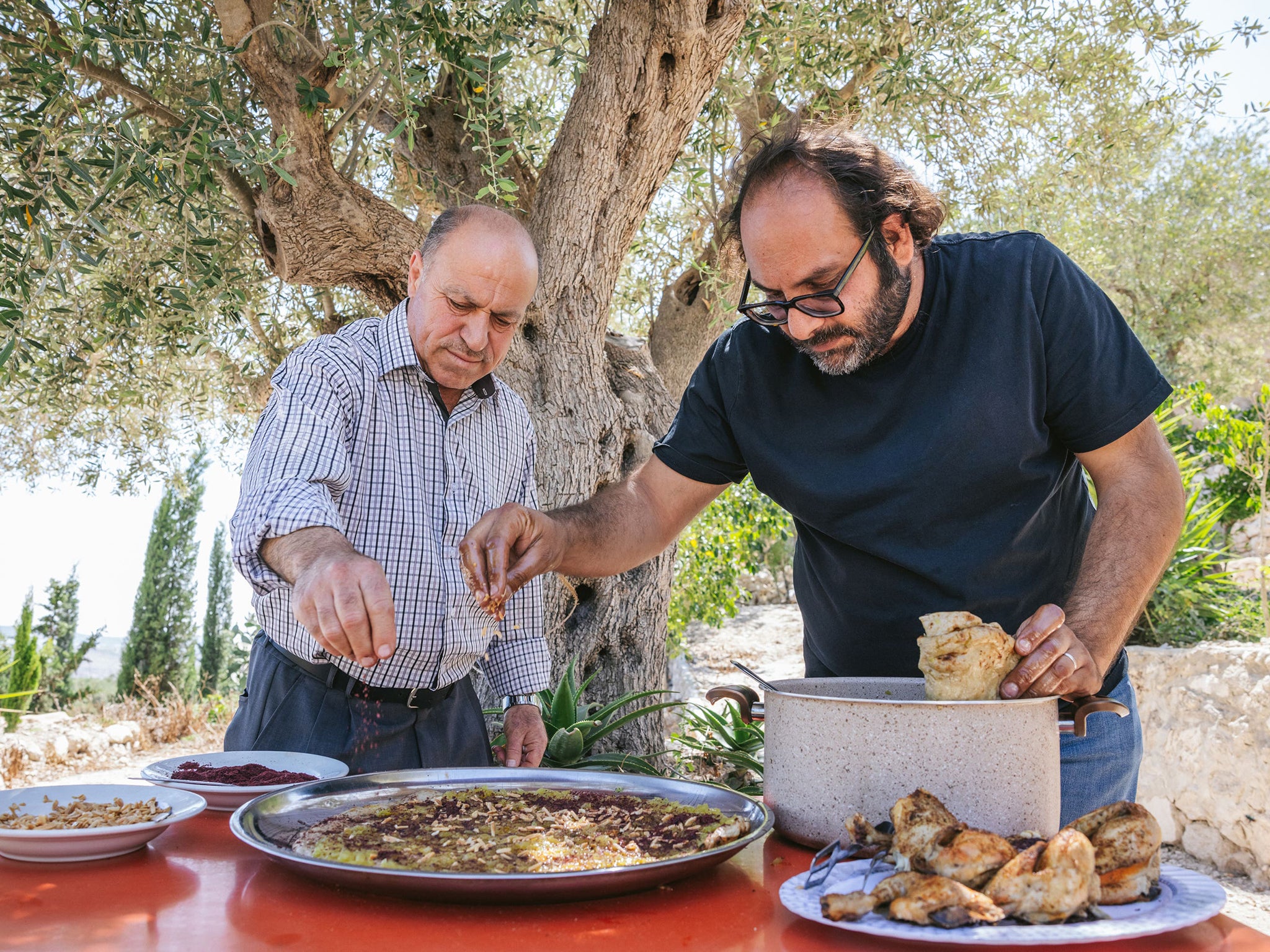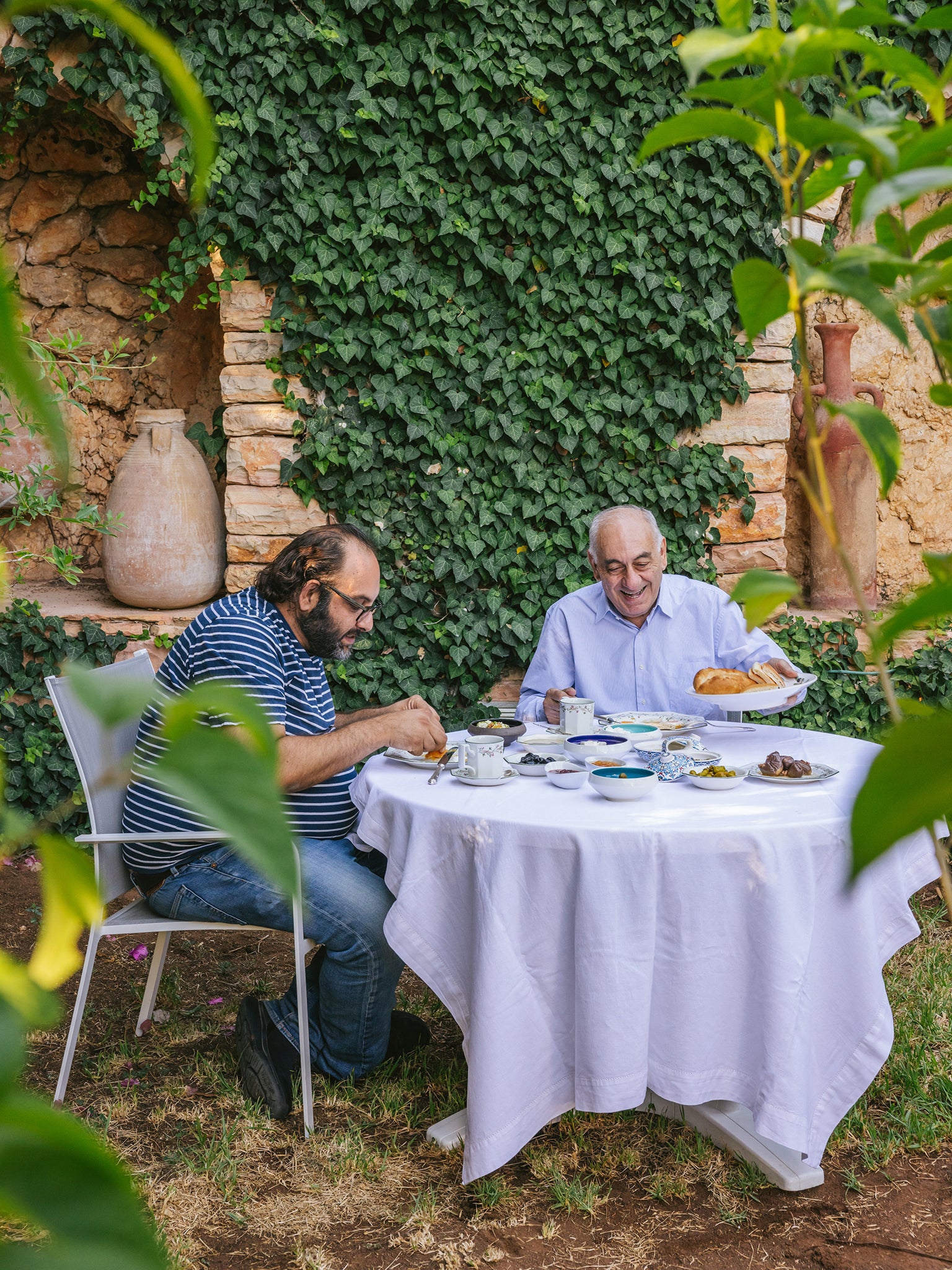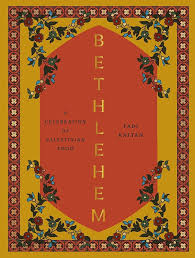Palestinian chef Fadi Kattan: ‘After the 7 October attack, I could not cook... but then food helped me to heal’
The chef and owner of Akub in London talks to Prudence Wade about his new cookbook inspired by the food of his hometown Bethlehem and why he feels like he has a responsibility to share his cuisine with the world

Your support helps us to tell the story
From reproductive rights to climate change to Big Tech, The Independent is on the ground when the story is developing. Whether it's investigating the financials of Elon Musk's pro-Trump PAC or producing our latest documentary, 'The A Word', which shines a light on the American women fighting for reproductive rights, we know how important it is to parse out the facts from the messaging.
At such a critical moment in US history, we need reporters on the ground. Your donation allows us to keep sending journalists to speak to both sides of the story.
The Independent is trusted by Americans across the entire political spectrum. And unlike many other quality news outlets, we choose not to lock Americans out of our reporting and analysis with paywalls. We believe quality journalism should be available to everyone, paid for by those who can afford it.
Your support makes all the difference.After the 7 October attack, Palestinian chef Fadi Kattan says he “could not cook”.
This was when Hamas launched an attack on Israel, sparking a new and brutal chapter in the Israel-Hamas war, which has reportedly killed around 1,200 people in Israel and 34,000 Palestinians.
“I will speak for myself: in the first few months after the seventh of October, I could not cook anymore,” Kattan, 46, says from his home in Bethlehem.
“I just could not. I would be in front of the stove and cry, because I have friends, I have family in Gaza.”
Kattan, a Franco-Palestinian chef who opened the restaurant Akub in London in 2023, continues: “But then food is healing – of course it is.
“Food brings a sense of community, and I slowly managed to break that paralysis. I was like, I have a responsibility to go on sharing that cuisine with people.”
So what defines Palestinian cuisine? “When you’re looking at the country, there’s three main terroirs: there’s a coast, a typical Mediterranean coast; there’s inland, that’s the inland of olives, almonds and fig trees; and then there’s the desert,” Kattan explains.
“Palestinian cuisine is a meeting point of those three terroirs, but also three culinary traditions.”

Certain elements run throughout. “It’s a very vegetable and herb-based cuisine,” he says, with a big emphasis on foraged seasonal greens. “Of course, the sea brings the fish. Also, we have to remember that we are at a crossroads of cultures, we are at a crossroad of historic trade routes, and all of those have given shape to our cuisine.
“It has commonalities with the rest of the region, with Lebanon, with Syria, with Jordan, in things like hummus – and it has very different particularities, in things like musakhan, which is made to celebrate the new olive oil. It’s bread, onions, sumac, chicken and a lot of olive oil.”
Kattan has written his first cookbook, which is a celebration of Palestinian cuisine – particularly putting the spotlight on the produce and dishes from his hometown of Bethlehem.
One of the recipes – eggs fried in ghee with sumac – is what Kattan calls his “first food memory in my grandmother’s kitchen”. He learned to cook from his grandmother and mother, although remembers being “told off” a lot – laughing at the memory of stirring a “massive cauldron” which “felt a bit like witchcraft – it was on a wood fire, I think the cauldron was taller than I was… I burned the bottom and I was told off.”
Now, his mother is his “go-to” for all things food. “In the book there is the lentil soup she makes – the reason it’s there is because it always felt like home, but also because she never had one recipe for it,” Kattan notes – which made for a bit of a nightmare when he was pulling it together, because his mother kept on adding and changing things.
It’s never a constant, which I think is beautiful with cuisine, because I don’t like dogma. Dogma is something that scares me, and what’s great with my mother’s cooking is there’s no dogma
“It’s never a constant, which I think is beautiful with cuisine, because I don’t like dogma. Dogma is something that scares me, and what’s great with my mother’s cooking is there’s no dogma.”
He wants people to keep that in mind when cooking his recipes, inviting them “to make them their own”, explaining: “If I say three garlic cloves, put none, put zero, put five – recipes are meant to be alive. I think that’s what my mother really taught me.”
Kattan knew from “early on” he wanted to be a chef and work in hospitality, but it wasn’t necessarily a straight line to get there.
“I come from a family that’s very business-oriented, with a long tradition of being in international trade. And when I told my parents, I’m going to become a cook, it didn’t go down well. So we negotiated – as trade families know how to do well – and we finally agreed on a balance, which was I would do my first degree in business, and then I would do my masters in whatever I wanted” – which ended up being at hospitality school in Paris.
He ran the restaurant Fawda in Bethlehem for almost a decade, before shutting its doors during the pandemic, but his love of hospitality continues.

Kattan remembers cooking in community restaurant Refettorio Geneva, where he made a paid-for meal for lunch, then a free-of-charge dinner for people who couldn’t afford to pay
“Serving people who hadn’t the possibility to sit down in a restaurant and be served at their tables was extremely humbling. It was a life lesson, because that’s what my grandmother used to do in her association here, the Arab Women’s Union in Bethlehem.
“The ethos I try living with is, of course we serve people who pay for their food, but we also serve people who don’t – we use our craft when we can, to have a human responsibility.”
With this in mind, Kattan says he doesn’t want to return to kitchens with a “very tough, rough atmosphere”, explaining: “It’s something I did a long time ago. I don’t want to see this again, I don’t want to be building teams like that. What I want is teams and people in kitchens that are really healthy, growing spaces.”
With his cookbook, Kattan hopes it “allows people, despite the images of horror – or beyond the images of horror – to see what we are. We are a people that are diverse, we are people that come from this land, that are attached to this land.”
He continues: “At the end of the day, this is a cookbook. It’s not a political book, it’s not a militant book – it’s a celebratory book. I think it’s important that we celebrate who we are.”
‘Bethlehem: A Celebration Of Palestinian Food’ by Fadi Kattan (Hardie Grant, £28).
Join our commenting forum
Join thought-provoking conversations, follow other Independent readers and see their replies
0Comments